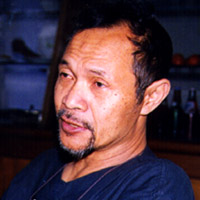| |
|
| Founder and Editor, Tempo |
|
|
Goenawan Mohamad has been a crusader for press freedom since his university days, when he set up the short-lived independent student newspaper Harian Kami in 1967, just a couple of years after Suharto engineered the overthrow of Indonesia’s founding president, Sukarno. Now, after sparring for decades with Suharto’s authoritarian government, it is Mohamad who remains on the public stage while his nemesis has been forced to resign. |
|

Harian Kami took advantage of the brief freedom offered by the nascent Suharto regime, but it was banned by the government in 1974. By that time, however, Mohamad had become editor of Tempo, an independent weekly magazine he founded in 1971. Patterned after western magazines such as Time and Newsweek, Tempo became the most respected and highest-circulation news magazine in Indonesia and served as a training ground for a generation of journalists. It sought to keep the Suharto government accountable to the public, and set new journalistic standards for the country with a mix of political commentary and investigative reporting on human rights and official corruption.
Tempo was frequently threatened with closure, and was banned for a short time in 1982 when it reported on violence instigated by the government-backed Golkar Party at an opposition campaign rally. In 1994, the magazine went too far for the regime when a cover story criticizing Indonesia’s purchase of 39 used navy ships from the former East Germany drew attention to a dispute between B. J. Habibie, the author of the deal and then a powerful cabinet minister, and a number of senior generals. Suharto was reportedly enraged with the airing of his regime’s dirty linen in print. Tempo was banned and its publication license revoked in June 1994, along with the licenses of two other popular news magazines. The action effectively ended a period of relative liberalization in the Indonesia media, inaugurating a clampdown that lasted until Suharto’s resignation on May 21, 1998.
Writing in 1998 before Suharto stepped down, Mohamad worried that the climate of repression in Indonesia could lead to anarchy. A free press, he said, was necessary if Indonesia was ever to find its way toward democratic change. But he had faith that the press would survive: “Information is just like water in that when a rock impedes the flow, water still flows by the side of the rock, or through the crevices,” he wrote. “The more restrictions are imposed, the more new activity in the media will be generated.”
After the 1994 ban, Mohamad led an effort by some 150 former Tempo staffers to challenge the dominance of the official Indonesian Reporters Association (PWI), by forming the Alliance of Independent Journalists (AJI), Indonesias only independent reporters association. He used his international contacts to set up the Institute for Studies in the Free Flow of Information (ISAI), which monitors attacks on the press in Indonesia. He was also instrumental in opening up new outlets for Tempo-style reporting, notably the weekly magazine D&R, which Mohamad helped change from a detective and romance story tabloid to a popular journal of news and political commentary. Mohamad helped put together a group to operate D&R and staff it with Tempo veterans, among them Ahmad Taufik, a 1995 winner of CPJ’s International Press Freedom Award. This editorial sleight of hand paid off as D&R gained a reputation for critical reporting even in the face of constant threats from the regime.
With the Indonesian political and economic crisis far from resolved, Mohamad, 57, is now poised to play a role in what may be the greatest drama of his turbulent careerbringing a genuinely free press to his country. Suharto is gone, but his successor, Habibie, who played a central role in the banning of Tempo, now has a stake in casting himself as a reform-minded transitional president. With the new government now pledging to permit press freedom, Mohamad and a group of former Tempo staffers relaunched their renowned magazine on October 6 with a dramatic cover story investigating the reported rapes of Chinese women during the widespread rioting in May that preceded Suharto’s resignation.
In announcing the relaunch, Mohamad acknowledged that problems may lie ahead for free expression in Indonesia. Tempo intends to hold the Habibie government accountable for its actions. “We have to make the government commit itself to press freedom”, Mohamad said.